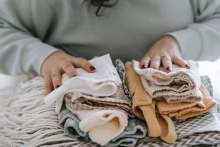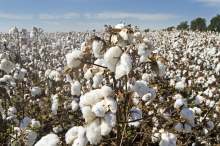After years of picketing factories and shops, arranging demonstrations, exposing labour violations and generally haranguing companies campaign group No Sweat are now stepping into the world of fashion to fight the system from the inside.
The organisation has spent two years searching for co-operatives run by former sweatshop workers – and has hired them to make T-shirts it can then import to the UK wholesale.
One of the co-ops it’s working with was set up in the aftermath of the Rana Plaza disaster in Bangladesh six years ago in which more than a thousand people – mostly garment workers – were killed when their factory collapsed.
The tragedy sparked waves of protest against the unsafe conditions endured by garment workers in Bangladesh – and put the spotlight on the big brands that source clothes from sweatshops while disregarding the rights of the workers that make them.
From the dust of Rana Plaza has risen Oporajeo, a workers’ co-operative that is now making T-shirts with No Sweat.
Set up by survivors of the disaster, Oporajeo – which means Invincible in Bengali – employs more than 50 people, men and women, of varying ages and abilities. All of them earn more than the industry standard salary and share 50% of the profits.
Parul, one of the workers said:
“There’s a huge difference working for Oporajeo compared to places I worked before.
“Before, I earned very little and was always pushed to work harder by my employer – but now I am working with people on an equal level, in a safe environment, taking part in the decisions of the company and sharing in the profits that we make.”
As a co-operative, Oporajeo also uses its profits to cover the medical expenses of all its workers, which in the first few years after the disaster meant emotional, psychological and physical support.
The co-op has since set up a school for the workers’ children and last year began to expand support beyond the factory by funding a hydropower plant in a remote village outside Dhaka, providing green energy to the 40 villagers.
No Sweats partnership with Oporajeo came about after campaigners decided to create their own brand T-shirt that actively fights against sweatshops.
Oporajeo is one of two co-ops that the campaigners are sourcing from. The other is Dignity Returns is a workers’ co-op in Thailand, also set up by former sweatshop workers.
These collaborations have come about after campaigners became disillusioned with fashion brands unwillingness to take the issue of workers rights seriously.
No Sweat activist Jay Kerr said, “in the 20 years since our launch “ethical fashion” has come along way.”
However, he says that new ethical brands were focusing more on the environment:
“We noticed that while environmental issues were rightly at the forefront of the socially conscious brands that were emerging, they often paid mere lip service to workers’ rights. Many brands neglect to mention workers’ rights at all or make vague pledges to treat workers well. “
Meanwhile, they believe that accreditation schemes set up to demonstrate compliance with ethical standards often only acknowledged the right to organize, with cases of abuse still emerging – such as the recent Spice Girls scandal involving the Fair Wear Foundation.
They hope that by sourcing only from workers’ co-ops – where workers run the factory democratically – workers rights will be guaranteed and not subjected to abuse by a profit-driven owner.
No Sweat will also donate a percentage of future profits generated by T-shirt sales to independent trade unions working for garment workers’ rights.
The campaign has already supplied T-shirts to dozens of bands, other campaign groups and unions.
No Sweat activist Jay Kerr said: “By working with former sweatshop workers to build their own businesses that then help fund unions defending the rights of other garment workers, we can create a circular economy that exists alongside our campaign work.”
Kazi Monir Hossain, one of the founders of Oporajeo in Bangladesh, is a keen supporter of the idea:
“We often see companies call themselves ‘fair trade’ and increase the price of their products without passing on the benefit to the workers,” he said.
“All of us at Oporajeo are the same, we are workers and we make our decisions together and make sure we all benefit together.
“Making clothes for No Sweat means our work can help other garment workers fight for their rights and share the benefits as well.”






